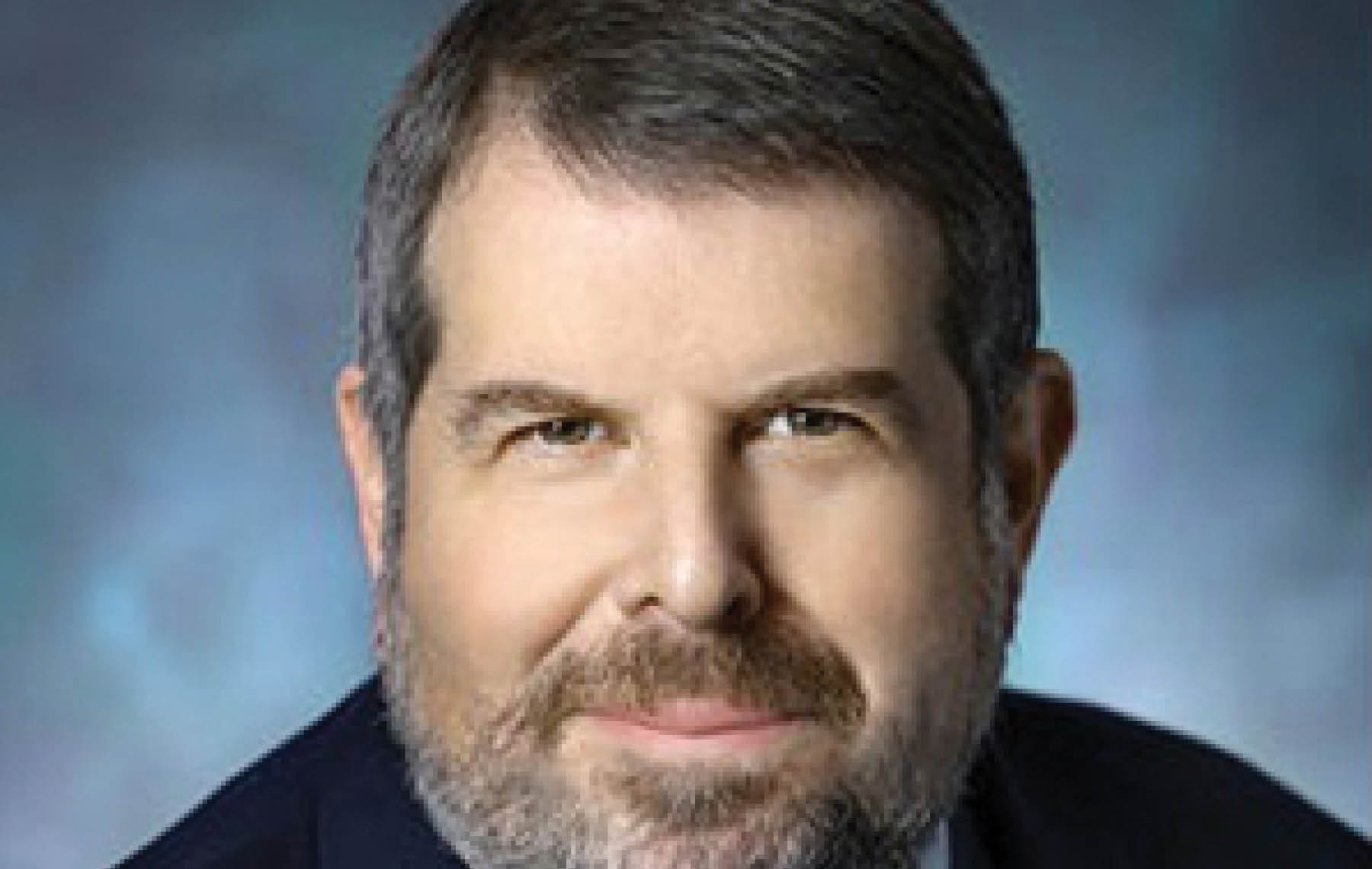
If you’ve paid attention to the state of politics over the past few years —or even the past few weeks — you might have noticed that Israel has become a polarizing wedge issue. It’s become the political tool of choice by both liberals and conservatives for asserting their stance among their base. The effect has magnified in the past year as President Donald Trump has galvanized every opportunity to paint the Democrats as an anti-Israel party while gloating that he is the “king of Israel.” Trump is riding on this sentiment in hopes to win reelection, which explains why he described voting for Democrats as being “disloyal” to Israel.
The hyper-partisan debate over Israel has further compounded in the Trump era. The emerging liberal view of young voters is that Israel is much less a bastion of democracy than it claims to be and more of an oppressive right-wing colonialist government. Israeli Prime Minister Benjamin Netanyahu’s full embrace of Trump has deepened this growing chasm, giving many the impression that the two leaders are a reflection of each other. By this logic, each should be treated as part of the same symptom to fight against.
In the most recent presidential cycle, Israel was not a banner issue that dominated the political zeitgeist. Yet so much has changed since 2016. Over the past decade, there has been mostly bipartisan support for the U.S.-Israel relationship. It’s only recently that one’s position on Israel has become a litmus test for political support.
Since its birth in 1948, the United States was the first country to recognize Israel’s existence, and ever since, the U.S. Congress has remained its strongest ally. That much remains true, despite what some people might tell you.
What has changed, however, is the pulse of Democratic and Republican voters — not so much politicians.
Recent polling indicates that pro-Israel support among Democrats is quickly eroding while support among Republicans is surging.
A 2018 Pew poll indicated the widest partisan divide over Israel in any single year with 79% of Republicans expressing sympathy for Israel versus only 27% of Democrats.
A 2019 Gallup poll revealed there are nearly as many liberal Democrats who sympathize with the Palestinians (38%) as with the Israelis (41%), with the rest favoring neither side, or are unsure.

In another Pew poll released in 2019, it’s reported that Democrats view the Israeli and Palestinian governments with nearly identical unfavorable ratings. Only 26% of Democrats have a favorable view of the Israeli government while 27% express a favorable view of the Palestinian government. By a one-point differential, more Democrats favor the Palestinian Authority — the government that paid terrorists over $400 million in 2018 — than the flawed but stable Israeli democracy.
To understand this paradigm shift requires an understanding of the changing political landscape as well as generational differences among voters. The Pew poll indicates that 56% of voters older than 65 sympathize more with Israel than the Palestinians, but only 32% of those younger than 30 say they feel the same way.
Alarming trends like these have some people concerned about the future of the Democratic Party and bipartisan support for Israel. In January, a new group called the Democratic Majority for Israel (DMFI) launched with the goal of energizing the party’s base with a pro-Israel message rooted in strong Democratic principles.
Over the past decade, there has been mostly bipartisan support for the U.S.-Israel relationship. It’s only recently that one’s position on Israel has become a litmus test for political support.
Mark Mellman leads the group. He’s a seasoned veteran of political consulting and one of the most revered pollsters in the country. His background in Democratic politics has a robust 35-year career.
Newsweek credits his work on the environment with helping “turn Bill Clinton green.” The Economist recognized him as the “brains behind the Democrats’ successful ‘Medicare’ strategy” and Politico described Mellman’s firm’s role in developing Democrats’ economic messages, noting that Mellman’s manufacturing presentation “electrified Democratic leaders.”
Mellman’s career has covered the full political landscape, but now he’s focusing his energy around Israel. The group’s board of directors is co-chaired by former Clinton White House Communications Director Ann Lewis, as well as former Michigan Gov. Jennifer Granholm, Democratic strategist Paul Begala and several other prominent political figures.
Explaining why he launched the group, Mellman told the Journal, “There is no organization that is waging the political battle to make sure that the Democratic Party remains pro-Israel.”
In its January launch statement, Mellman said, “Our mission at Democratic Majority for Israel is to strengthen the pro-Israel tradition of the Democratic Party, fight for Democratic values and work within the progressive movement to advance policies that ensure a strong U.S.-Israel relationship.”
Despite the dismal polling that indicates a decline in Democratic pro-Israel support, Mellman remains optimistic, reassured by the overwhelming number of pro-Israel Democrats in Congress. Still, he sees some warning signs of deterioration among the base.
“For 10 or 15 years now, the pro-Israel message has been coming largely from the right to the left — and that just doesn’t work,” he said. “There is different vocabulary, different values, different touchstones, different concepts that are important.”
Mellman notes how in this hyper-partisan climate, Israel has been co-opted as a conservative issue. “People look at Netanyahu and say he was tight with Mitt Romney and now even tighter with Donald Trump. If he’s friends with these Republicans, then he must be the enemy of Democrats. That is another overlay to the problem.”
Matt Brooks, executive director of the Republican Jewish Committee, told the Journal in an email why he thinks the pro-Israel message has become more dominant among conservatives.
“I think the biggest reason for this is the shifting political center of gravity toward the progressives in the Democratic Party,” he said. “They have been largely responsible for pulling the Democratic Party away from its traditional pro-Israel moorings. I believe support for Israel should be bipartisan but sadly, Democrats/progressives have turned sharply away from Israel in recent years.”
As noted earlier, numerous polls indicate that the majority of Democratic voters have waning sympathies for Israel — particularly the younger, more progressive wing of the party. Older generations of liberals think of Israel within the context of defending itself against hostile neighbors while the young progressive wing sees a different narrative. The social justice-conscious generation that dominates progressive movements today sees Israel’s more than half-century occupation of the West Bank as an oppressive abuse of power against a people they view as powerless victims. Here lies the great dilemma.
In 2017, the Democratic Socialists of America voted to include boycott, divestment and sanctions (BDS) in its party platform, a stunning rebuke of its founders, Michael Harrington and Irving Howe — longtime Israel advocates. Mellman is not fazed by this development, but rather more concerned with Israel being demonized within more traditional flanks of the party.
“There’s a group called RootsAction,” he said. “They put out a list of incumbent Dems who should be primaried. For the first time I’ve seen, they included their support for Israel as a reason to challenge these incumbents. And they’re not part of Democratic Socialists of America.”
The list included Eliot Engel (D-N.Y.), Josh Gottheimer (D-N.J.), Brad Schneider (D-Ill.) and Juan Vargas (D-San Diego).
“We have a state party in California that was endorsing six bellicose anti-Israel resolutions,” Mellman continued. “They were stopped, but they were on the agenda.” This is in reference to California’s Democratic convention held in San Francisco from May 31-June 2, which was widely condemned by the Anti-Defamation League and Jewish Democratic Council of America for its one-sided blame of Israel for fueling violence and conflict.
“There is no organization that is waging the political battle to make sure that the Democratic Party remains pro-Israel.” — Mark Mellman
In March of this year, the progressive advocacy group MoveOn led a campaign encouraging 2020 presidential candidates to #SkipAIPAC. “You cannot be a progressive and support AIPAC because of the policies that they’ve supported,” Iram Ali, MoveOn’s campaign director, told NBC News.
The political infighting perhaps has best been portrayed by the intense relationship between House Speaker Nancy Pelosi (D-San Francisco) and the likes of newly elected Reps. Alexandria Ocasio-Cortez (D-N.Y.), Ilhan Omar (D-Minn.), and Rashida Tlaib (D-Mich.). The clash of political views on issues ranging from Israel to climate legislation seems like the type of division that would come from separate parties, not from within the same one.
For pro-Israel Democratic politicians to resonate with young voters, they have to achieve the balancing act of defending the virtues of the U.S.-Israel relationship while also acknowledging the precarious nature of the conflict. Landing the perfect balance is a near masterful dance.
It’s become in vogue for progressive groups to demonize Israel beyond legitimate criticism all while ignoring flagrant wrongdoings by the Palestinian leadership. Palestinian solidarity has become a rallying cry for movements as disparate as women’s equality to LGBTQ rights.
In 2016, roughly 200 pro-Palestinian demonstrators shut down a panel at the National LGBTQ Task Force’s annual “Creating Change” conference featuring A Wider Bridge, a group that seeks to advance LGBTQ rights in Israel.
And again, at the January Creating Change Conference in Detroit, pro-Palestinian demonstrators disrupted the opening ceremony, staging a 13-minute protest chanting “From the river to the sea, Palestine will be free,” a slogan which refers to wiping out the Jewish state.
Rebecca Vilkomerson, the executive director of Jewish Voice for Peace, said in an interview last year with the online news publication The Intercept, “It’s becoming almost standard that if you support single-payer health care and climate justice, you’ll support Palestinian rights.”
In June, the Washington, D.C., Dyke March made a spectacle of banning Jewish pride flags due to their resemblance to the Israeli flag, claiming that they represented “national symbols.” Co-Chair Ann Lewis showed up along with other progressive pro-Israel groups organized by Zioness and A Wider Bridge and after an 11-minute standoff managed to be let into the march.
At 82, Lewis is just as active as ever. “We showed up, we spoke up and people responded to us,” she said, adding that in Mellman, pro-Israel Democrats have a well-informed optimist.
“There’s a perception among young people in the Democratic Party that being pro-Israel is not good politics in the primary. One of the things we’re trying to do is change that perception.” — Mark Mellman
And there are incidents that show that optimism is not necessarily misplaced. In July, an overwhelming majority of the House passed H.R. 246, which condemned the BDS movement targeting Israel. The resolution passed by a vote of 398-17. But Mellman is still vigilant of the trends.
“There’s a perception among young people in the Democratic Party that being pro-Israel is not good politics in the primary,” he said. “One of the things we’re trying to do is change that perception.”
Mellman’s group has put that to the test. For the 2020 presidential race, DMFI has organized grassroots activists in Iowa and New Hampshire to make sure its message gets out. Their most prominent activation came in response to the anti-occupation group IfNotNow, which Mellman notes “doesn’t recognize Israel’s right to exist in any boundaries.” IfNotNow led a campaign pressuring presidential candidates to vow to end Israel’s occupation of the West Bank. DMFI provided 2020 candidates with talking points on how to respond to these incidents and released a memo to all candidates.
Mellman notes that his group is keeping the presidential candidates on message. “Most of these candidates have very strong pro-Israel records,” he said. “On the other hand, a couple of months ago 700 rockets were fired at Israel from Gaza — not one of those candidates made a statement about it. We contacted each of the campaigns — after we did, four or five made a statement about it.”
For pro-Israel Democratic politicians to resonate with young voters, they have to achieve the balancing act of defending the virtues of the U.S.-Israel relationship while also acknowledging the precarious nature of the conflict.
Mellman’s organization has launched its own super PAC and plans to fund candidates in addition to advocating for policy and messaging. He said, “The people we are supporting are already pro-Israel. They didn’t decide to become pro-Israel in hopes that we would support them. There’s super PACs in every issue except in the pro-Israel community.” He added, “We are the only pro-Israel super PAC, certainly on the Democratic side.”
It’s no secret that President Trump wants to make recently elected Congresswomen Omar and Tlaib the face of the Democratic Party over their support for BDS. But Mellman notes that Omar and Tlaib dominating the media doesn’t mean their views prevail in Congress.
“We saw that 92% of Democrats in the House voted to condemn the BDS movement,” he said.
Although DMFI is focused on supporting pro-Israel Democrats, it’s open to having dialogue under as big a tent as possible, including Omar.
“I don’t want to say she’s a lost cause,” Mellman said. “We have tried on several occasions to meet with her to discuss our views and to do so privately. We were told that we would have such a meeting by her office, but so far they have refused to schedule it. We don’t consider anybody a lost cause. We want to talk to everyone.”
Mellman said DMFI also tried to talk directly with Tlaib, but, “She, too, essentially refused our entreaty.”
Nonetheless, Mellman remains optimistic, although he tempers it with realism. “I am concerned about the future trend,” he said. “If I wasn’t concerned, I would’ve stayed at my firm doing what I’ve been doing for the last 35 years.”
Update: A previous version of this article incorrectly stated that in polls Democrats had “unfavorable” views of Israel rather than “waning sympathies” for Israel and that Republicans had “favorable” views of Israel rather than “expressing sympathy” for Israel.
Peter Fox is a contributing writer for the Forward and Tablet magazine. Follow him on Twitter @thatpeterfox.























